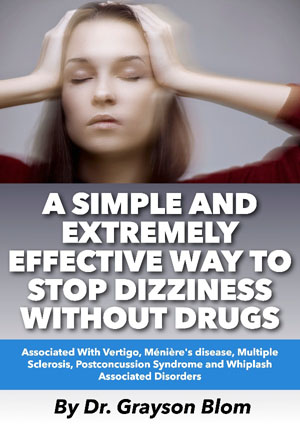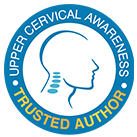upper cervical blogdr. blom Work Specifically in the neck and neck related disorders?
|
 When Everything Spins If you go through times when it feels like everything is spinning, but you're not moving, we understand the pain and frustration you're feeling. You know you're suffering from Vertigo or Disequilibrium, but you're not sure which one. That can be frustrating, but not know which one is not nearly as frustrating as just going through the stress. Well, they are similar, but there are differences. People who experience Vertigo get the sensation they are spinning when there is no movement. People who suffer from Disequilibrium deal with the sensation that they're falling, the floor is tilting, or they're floating. Now, it's important to note that both of these conditions are signs of an underlying condition, so it's important for those who suffer from one of these conditions to know which one they suffer from. We'll look at those conditions caused by Vertigo in this blog, and then next week we'll look at those caused by Disequilibrium. Vertigo Related Diseases
Living Past Vertigo If you suffer from Vertigo, you will want to stop the suffering as soon as possible. Generally most people will first seek evaluation of an ear, nose and throat doctor to evaluate for some of the issues described above that may be causing vertigo. If none of those issues are at work then you likely will be prescribed some sort of medication for the symptoms and told that you will need to learn to live with it. However there is a common underlying cause of vertigo that many medical doctors are likely unaware of, this is what’s known as cervicogenic vertigo. Cervicogenic, meaning of the neck (cervical) is when vertigo, dizziness, disequilibrium, Ménière’s disease, tinnitus is a result of issues in the neck. If you have had a history of head or neck injuries including car accidents, falls, sports injuries, concussions, whiplash, been knocked unconscious etc. is very likely that you have suffered a misalignment to your upper neck. Misalignments in the upper neck can lead to a variety of changes with the nerves that began in that area at the level of the brainstem. Vertigo is just one of the symptoms that are commonly associated with upper neck misalignments. Dr. Grayson Blom has seen tremendous results with those suffering with vertigo and similar conditions by evaluating the upper neck for misalignment and correcting those misalignments in order to help regulate normal nerve, blood and cerebrospinal fluid flow to from and through the brain. References:
0 Comments
Your comment will be posted after it is approved.
Leave a Reply. |
Dr. BlomUpper Cervical Chiropractor Categories
All
Archives
February 2024
|




 RSS Feed
RSS Feed


